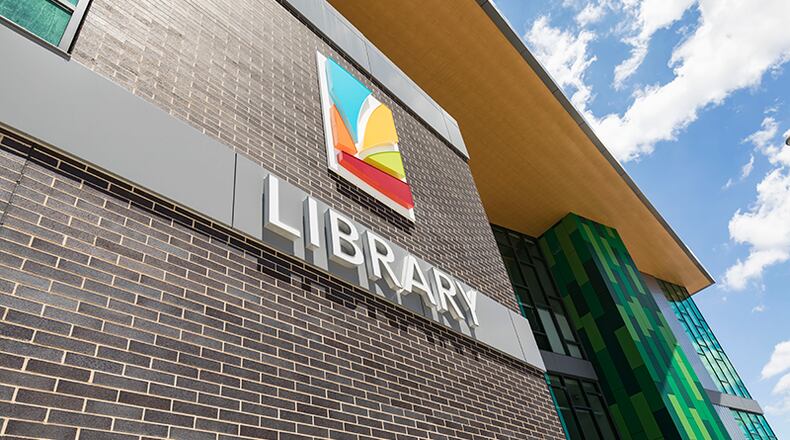“During its 135-year history, Dayton Metro Library has upheld its mission to inform, inspire, and empower the communities we serve,” said Sara E. Woodhull, a Dayton Metro Library board trustee. “The library remains committed to providing programming and services that support early childhood literacy and learning activities for students of all ages.”
Library officials said in a press release that with voter approval, the levy will ensure the library can continue to offer youth and family programs, books, job search and resume support, free Wi-Fi and computer access and other services.
Jeffrey Trzeciak, executive director of Dayton Metro Library, said in a press release that the library will have to cut $7 million from its budget without the levy. That’s roughly 20% of the library’s budget, according to a press release.
“Without new funding, cuts will reduce library programs, technology, digital access, books and materials, library branch hours of service, and staff,” said Trzeciak.
The proposed 5-year, 1-mil levy on the November ballot would amount to $35 for every $100,000 of property value annually. The board estimated that this would generate nearly $10.6 million each year if passed by voters.
Dayton Metro Library, which has 17 locations, hasn’t asked for an additional operating levy in 15 years.
Last year, Dayton Metro completed its 10-year Libraries for a Smarter Future initiative, which included a system-wide library construction and renovation project. This effort was funded by a $187 million bond issue that voters approved in 2012 with a 62% majority. This money did not cover any costs related to operating expenses.
In Ohio, public libraries receive state funding through the Public Library Fund. According to the Ohio Library Council, an organization that advocates for public libraries, roughly 51% of the total funding for Ohio’s public libraries comes from the state through the Public Library Fund.
In the state budget, the Public Library Fund gets 1.7% of the state’s general revenue fund. That general revenue fund receives more than two-thirds of its money from sales and income taxes.
The Montgomery County Budget Commission, which consists of the county’s auditor, treasurer and prosecutor, last year passed along $25 million in state funding to local libraries. This is down from $26.6 million the prior fiscal year.
Montgomery County’s drop in funding mirrored that of other counties in the state, budget commission officials said.
Dayton Metro Library saw a more than $850,000 decrease in its allocation compared to the year before. The county’s largest library system makes up a little more than 80% of the county’s Public Library Fund.
The library system is also supported by individual and private philanthropy, revenue which often finances the various programs and events held at each library location.
In 2022, the library operated in a deficit of $20.1 million — $18.5 million of which was related to library construction.
According to library Chief Financial Officer Hilary Browning, as of the end of June, Dayton Metro has nearly $31.7 million in the bank. Much of this money is restricted to paying bond service for construction or building capital repairs, but $10.9 million is unobligated, general fund money.
The library has been operating in deficit for every fiscal year since 2016, except for 2020 and 2021 impacted by the COVID-19 pandemic, Browning said. The library estimates that the 2024 deficit could stand at $6.8 million, while the 2025 operating deficit is projected to be $9.6 million.
The library has made some cost-saving measures this year; notably, the main branch closed out its Sunday hours. This change, library staff said, would save the library system $143,000 annually.
Browning said the library already has plans to reduce expenditures by another $2.5 million this year, already achieving savings of $1.7 million as of July 15. Cuts include information technology project deferral, furniture repair instead of replacement, a pause on food programming and changes to supplies used in Youth Services.
Carl Kennebrew, a Dayton Metro Library board trustee, said resources the library provides, such as free access to research databases and tools that help residents search for employment, help advance their personal and professional goals.
“Without these resources many in our community would find it difficult to access career and education support and services,” Kennebrew said.
Staff Writer Aimee Hancock contributed to this report.
About the Author

